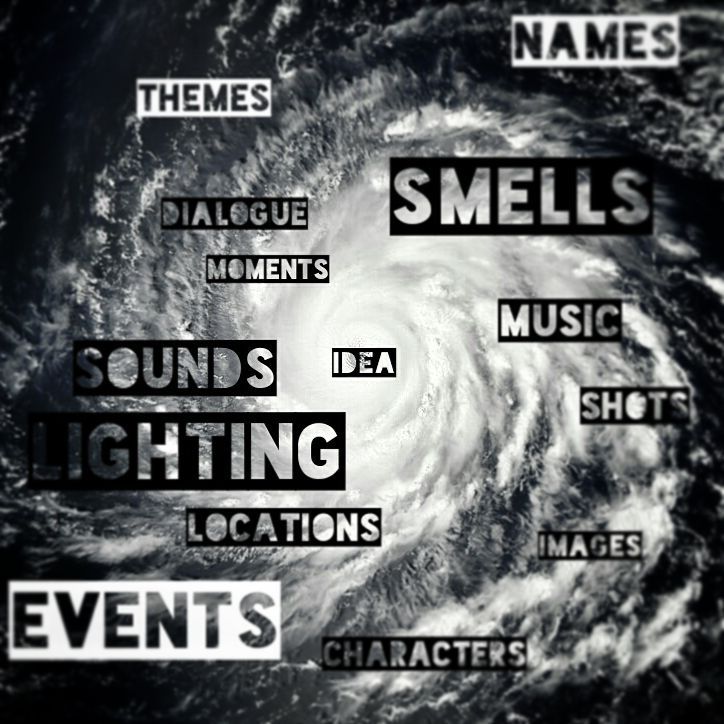
“For me scriptwriting begins with weeks, months or years of stuff swirling toward something that’s hopefully articulate. Maybe.” – old Instragram post from Joshua.
Creativity is a weird thing. It comes to everyone in different ways at different times, and it can be a process to anticipate when and where it will happen until a pattern emerges.
And then there’s those for whom this isn’t an issue.
It is for me, so I’ll speak from my experience. I’ve definitely been at my most creative in collaborative, intense environments; at university, film school, in my old job as a Producer for sport, gaming and tech publications. As a someone who requires significant ‘me time’ to function, my personal life is at odds with my creative life. In crunch mode for work I need to be alone too (when working full time I’d often work from home during a crunch), but when it comes to creativity I find bouncing ideas to be far and away the most productive once I have the seed of a project. But how to find, and nurture those seeds?
Note taking has become an important part of my creative management.
More often than not ideas I would like to work on come to me in what I’d call traditionally unproductive environments; seeds of ideas flash into my head with relative frequency (followed by great difficulty in developing them into something more tangible). Buses, trains, the shower, driving and listening to music — those are the places I have ideas most. Notepads, more often than not digital, are my solution. Along with many, many other people.
Recently I’ve found handwritten notes, later typed and massaged, to be more effective. Something about a seamless flow of consciousness that comes more easily to the pen than the keyboard or touchscreen.
So that’s how I handle the unsolicited ideas (thanks brain), but as any artist, writer or — let’s just say ‘creative’* — knows, there comes a time where harnessing these environments becomes key to the process. We need to ask ourselves ‘what’s the patterns?’ — ‘how can I force creativity when it never comes on-demand?
At its most raw the question we’re asking is inherent to what we are as organisms; human beings don’t evolve to suit the environment, we change the environment to suit us or equip ourselves with the tools to survive. We make thatch houses and light fires. We clear land to sow crops. We install air-conditioning to always live at the perfect 23 degrees Celsius (not open to discussion). We do this every single day and most of us live in a completely artificial world in which we preserve nature as a means for escape.
Our creativity, like any function in our life, isn’t different. That I primarily have ideas in situations unfriendly to working on them is not an obstacle to developing them in full; that I have ideas in unstructured streams of raw inspiration — a natural phenomenon afforded to the human mind — does not mean I cannot catch my creativity and put it in a ‘zoo’.
It took an embarrassingly long time for me to realise I can save my ideas, construct environments for my creativity and work on them there. I began taking notes all the time, instead of thinking only of obstacles. Take notes when I reached wherever I’m going in the car (in order to hold onto my ideas I tend to hit ‘repeat’ on whatever music I have playing to make my mind a stuck record). Save it for later.
A further embarrassment is my key refuge is a cliché — the cafe. Headphones on, it’s the movement of people backed by my music of choice, a laptop and tethered phone for research, a notepad for notes. Whatever, I guess — if it works.
This isn’t to say any of this will work for you. Although I have outlined common issues, along with common methods, there’s no rules. I’m just saying it’s important to take notice of when and where ideas seem to arrive and figure out how to capture, and subsequently nurture them.
For the most part it does work, making discipline and sounding boards the biggest challenge, which brings us back to my endless nattering about collaboration. I find going beyond concept a challenge without bouncing off others. A huge part of the wall I hit is The Gap, more often than not in the form of overthinking. I’ll leave you with the words of the incredible Ira Glass…
Joshua Lundberg is a Writer and Director at Barking Mouse®, and co-Founder along with Producer Georgia Woodward. Together they create films, web series as well as commercial and corporate content for clients.
